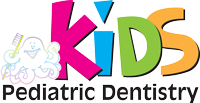25 Dec Dental and Personal Hygiene for Children and Families
There is no doubt that our hygiene has a very strong connection to our health. We can avoid and resist a great number of illnesses by keeping our bodies clean. When we raise our children, it’s extremely important to teach them proper hygiene habits. What’s even more important is to show them a good example of personal cleanliness, as this is proven to be the most effective method of hygiene education.
Good dental habits
Taking care of your child’s mouth and teeth will help to keep other parts of the body healthy as well.
How to establish good dental habits in your child:
- Visit a pediatric dentist regularly. By the time your child goes to elementary school, he/she needs to establish routine dentist visits.
- Toothbrushing. Brushing teeth twice a day for two minutes with antibacterial toothpaste with fluoride. It is very important to teach your child to brush the teeth that are hard to reach in the back of their mouth. Plaque that accumulates in the back teeth often causes bacterial infections that may lead to serious health issues.
- Flossing. Flossing a child’s teeth will remove plaque from between the teeth to prevent gum disease and cavities.
- Mouth rinsing. Introduce your child to antibacterial mouth wash at the age of seven-eight.
- To keep teeth healthy and strong for a long time, help your child to establish a healthy diet avoiding sugary foods, sources of plaque. Remember that bread, crackers and cereals – are another source of acids to form.
Hand-Washing
Germs can enter the body from dirty hands through the mouth, eyes, nose, and ears. It’s important to remind children to wash their hands every time they are visibly dirty, and every time they come back from outside, after petting the animals, blowing their nose, and every time before eating. The proper hand-washing lasts about 15 seconds, and requires thorough rinsing afterwards. Helpful idea – teach your baby to sing the ABC song while they wash – it’s 20 seconds long – ideal washing time.
Bathing
No doubt you give your baby a bath regularly, but by about age 5, they should be able to do it by themselves. While you will be supervising bath time, always teach and remind them about washing different body parts: armpits, groins, neck, belly, knees, elbows, back, feet.
Changing clothing daily also helps to avoid body odor. Body odor is generally considered socially offensive, so it’s important to maintain good personal hygiene. Teach your children the importance of staying clean.
Feet and Nails
Children need to learn that taking care of the feet is important for overall foot health. Washing feet every day will help to remove foot odor.
You will clip your child’s nails regularly when they are babies, but when they grow, you need to teach them how to clip nails on their own. The best time to trim the nails – after bath or shower – when nails are softer and clip easier.
Taking care of your body, and living a healthy lifestyle will help to keep your body away from disease and illness. If we take care of our bodies from a young age, we stay healthier and happier. A proper diet will keep your body healthy and strong, and exercising daily and staying active will help children to establish healthy lifelong habits.
If you have any questions about establishing healthy habits for your children, you can always contact a dietician, pediatric doctors, and dentists. With any questions for healthy dental habits for your children, please contact Dr. Lisi at Kids Pediatrics Dentistry in Allen. Our specialists will be happy to help you with any dental related questions.
Related Links:
https://dentistry.uic.edu/patients/oral-hygiene
https://wwwdentalcenter-in.com/dental-personal-hygiene-families/
https://www.dentalone-va.com/proper-hand-washing-teeth-brushing-and-other-hygiene-practices/
https://www.kidspediatricdentistry.com/blog/brushing-toddlers-teeth-get-baby-cooperate
https://www.healthline.com/health/hygiene-habits-kids#underarm-care
